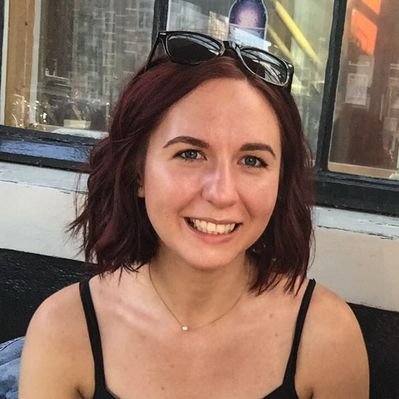This session consists of 3 presentations and a joint Q&A with the presenters. The session contains:
➺ Sanita Grina - It Happened Here: how the National Archives of Latvia help to uncover hidden history of Latvian towns and villages on national TV (Short presentation)
➺ Virginia Millington - Adapting at Scale and in Real Time - Evolving Ways of Creating an Audiovisual Record of the Contemporary Moment at StoryCorps (Long presentation)
➺ Laura Alhach Castro - (In)Visible Yuruparí: Exercises in Political, Collective, Material and Embodied Memory (Short presentation)
**Abstracts:**
➺ It Happened Here: how the National Archives of Latvia help to uncover hidden history of Latvian towns and villages on national TV
--
Sanita Grina (Short presentation)
--
Documentary series It Happened Here (Tas notika šeit) have been running on Latvian public television for five seasons. The premise is simple – in each episode, three historians arrive in a small town or village somewhere in Latvia. They have three days to uncover and research a story, with the help of the local inhabitants, about something connected to this place – for instance, the historical roots of a local legend, unknown facts about a famous person born in the place, or even make a surprising new discovery. At the end of the three days, the historians present their findings to the locals, who vote on the best story and bestow a title referring to it to a local landmark. In this presentation we would like to tell about how our partnership with the series producer, film studio Mistrus Media, has allowed to create one of the most watched documentary series on Latvian TV – entertaining, yet true to the principles of microhistory, making the local history visible on national scale, involving local historians, librarians, museum workers, storytellers, and, last but not least, boosting the pride of its inhabitants in their native place.
➺ Adapting at Scale and in Real Time - Evolving Ways of Creating an Audiovisual Record of the Contemporary Moment at StoryCorps
--
Virginia Millington (Long presentation)
--
StoryCorps began in 2003 with the opening of a recording booth in Grand Central Station. From the beginning, StoryCorps worked in collaboration with the American Folklife Center at the Library of Congress to create an audio archive of the human experience, mediated through personal conversations. StoryCorps also experimented with new ways to record these personal interviews through the development of recording kits that could be shipped through the mail, a traveling Airstream trailer equipped with a sound booth, and stationary StoryBooths in a network of cities.
In 2019, StoryCorps made accessible to the public a collection of over 50,000 facilitated StoryCorps interviews, which included tools for participants to be able to access and share their own interviews. The lead up to this effort involved significant collaboration with the Library of Congress, and an outreach plan with the goal of informing over 99% of participants about this step. Although we had the rights to release these interviews to a broader public, how should we ethically and tactfully treat interviews that might require special consideration? Most importantly, how might we mitigate any concerns, internal and external, that might arise from taking such a major step?
This presentation will discuss, in practical terms, the stages of StoryCorps’ evolution, with a specific focus on StoryCorps’ changing technologies, our ongoing partnership with the Library of Congress, the formation of a specific ethical framework for display and access, and our plans for the future.
➺ (In)Visible Yuruparí: Exercises in Political, Collective, Material and Embodied Memory
--
Laura Alhach Castro (Short presentation)
--
The state television series, ‘Yuruparí: Popular Traditional Art’, documented cultural expressions of peasant, Afro and indigenous populations in Colombia, leaving a memory of the sociopolitical configurations in the midst of the armed conflict of the 1980s. Being the most complete ethnographic record of its time, with rituals, festivals and songs declared Intangible Heritage of Humanity, the preservation of this collection after its censorship, invites us to reflect on access and restitution policies, in order to unveil untold stories and embedded narratives. Following the beginning of its restoration in 2013, led by independent researchers, filmmakers, public institutions and international organizations, 24 of the 86 chapters in 16mm have been completed.
The central figure of Gloria Triana, its main director, has led the conventional narrative around this archive. However, based on the documentation management and contextualization with a gender perspective of the private, state and community archives around this collection, more than 25 participating women who constitute part of Colombian audiovisual history have been made visible; Ann Marie Lóök, Beatriz Barros and María Ema Frade are just some of them.
In this way, in an exercise to recover the oral memory of the production team, the participation of the populations represented in the collective cataloging of their episodes, and the making of a film with the found materials, this project proposes different approaches to reread the sociopolitical narrative(s) imposed in the series and delve into the challenges of access, reuse and promotion of public archives in Colombia.
